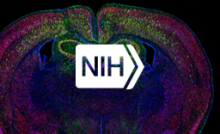
These funding opportunities support the BRAIN Initiative Cell Atlas Network (BICAN), which aims to build reference brain cell atlases for wide dissemination throughout the research community.
As previewed earlier, the NIH BRAIN Initiative recently released three Notices of Funding Opportunities (NOFOs) to collectively support the development of the BRAIN Initiative Cell Atlas Network (BICAN). The BICAN is aimed to build reference brain cell atlases that will be widely used throughout the research community, providing a molecular and anatomical foundational framework for the study of brain function and disorders. While mice are premiere model organisms for understanding brain diseases, this effort will facilitate a mapping of cells and circuits across species, from mice to humans, enabling a better understanding of the cell features that make us uniquely human.
RFA-MH-21-235 BRAIN Initiative Cell Atlas Network (BICAN): Comprehensive Center on Human and Non-human Primate Brain Cell Atlases (UM1 Clinical Trial Not Allowed)
This NOFO will support a group of large-scale Comprehensive Centers that will adopt scalable technology platforms and streamlined sampling strategies and assay cascade to create comprehensive and highly granular brain cell atlases of human and non-human primates, with an emphasis on humans. The Centers are expected to characterize all brain cell types (neurons, glia, and other non-neuronal cells) at high-resolution. The NOFO, along with its companion U01 (see RFA-MH-21-236), is expected to make 2-4 awards totaling $95M per year.
RFA-MH-21-236 BRAIN Initiative Cell Atlas Network (BICAN): Specialized Collaboratory on Human, Non-human Primate, and Mouse Brain Cell Atlases (U01 Clinical Trial Not Allowed)
This NOFO will support a group of Specialized Collaboratories that will adopt scalable technology platforms and streamlined sampling strategies to complement the Comprehensive Centers (RFA-MH-21-235). The Collaboratories are expected to create brain cell atlases in select brain regions and cell types in humans, non-human primates, and mice, or use specialized and innovative technology and assay platforms to characterize cell features. Applicants should propose research aims and approaches that may be less comprehensive in breadth than Centers but will provide greater depth of coverage and analysis for specific brain regions, brain cell types, species, and developmental stages. Successful Collaboratories will distinguish themselves from existing and prior projects in their goals, tissues, assays, and personnel. The NOFO, along with its companion UM1 (see RFA-MH-21-235), is expected to make 5-10 awards totaling $95M per year.
RFA-MH-21-237 BRAIN Initiative Cell Atlas Network (BICAN): Coordinating Unit for Biostatistics, Informatics, and Engagement (CUBIE) (U24 Clinical Trial Not Allowed)
This NOFO will support an integrated Coordinating Unit of Biostatistics, Informatics, and Engagement (CUBIE) that will be composed of four elements to establish: (1) a common sequencing data processing pipeline; (2) a common imaging data processing pipeline; (3) a comprehensive brain cell knowledge base; and (4) an engagement and outreach element to coordinate the research within and beyond BICAN. Applicants should propose only one of the above four respective elements.
CUBIE aims to: (i) enable the exploration of large-scale brain cell atlas data and knowledge, and inspire research in brain function and disorders; and (ii) ensure research rigor and data reproducibility by making the data Findable, Accessible, Interoperable, and Reusable (FAIR), and the process transparent. The NOFO is expected to commit $5M per year to fund 4-8 awards.
As part of the NIH BRAIN Initiative’s efforts to promote more impactful science through the inclusion of diverse perspectives, these NOFOs (among most upcoming BRAIN NOFOs) will require a Plan for Enhancing Diverse Perspectives (PEDP) as part of the application.
All three BICAN NOFOs have an application due date of November 9, 2021.
